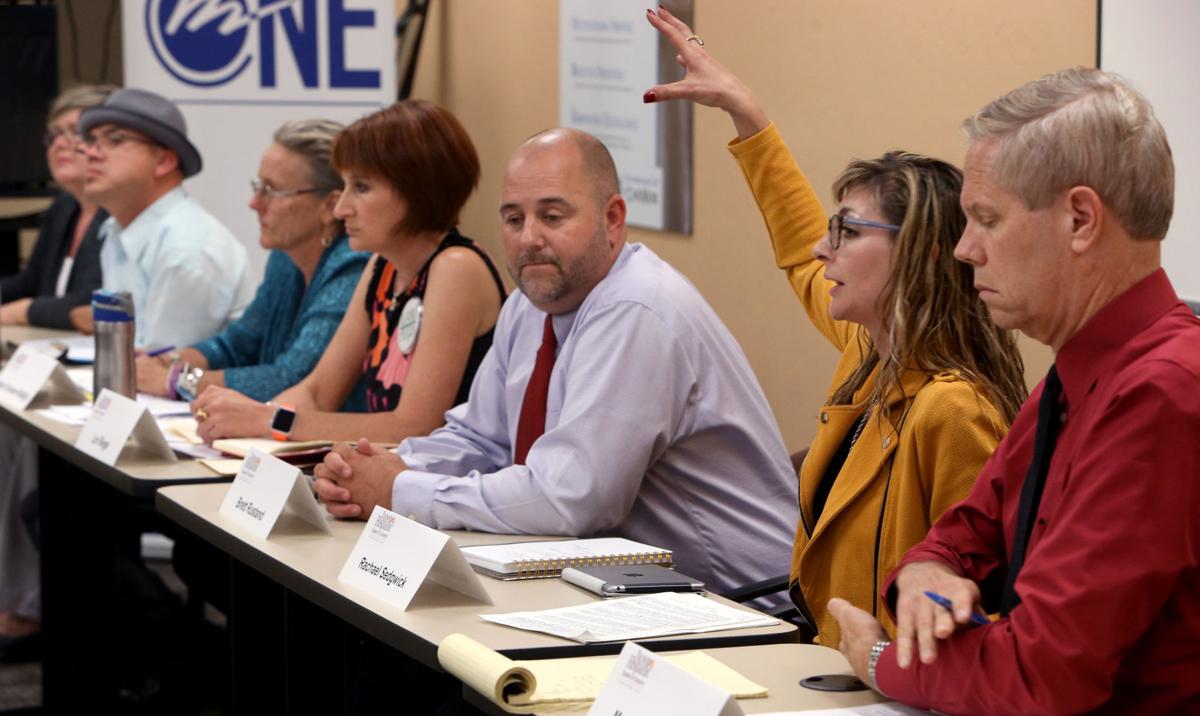The race is on for three seats on the TUSD Governing Board and the seven candidates are sharing their thoughts on academic achievement, student discipline and the need for a cohesive board.
Those elected in November will make decisions over the next four years for more than 47,000 Tucson children. Incumbents Kristel Foster, Cam Juarez and Mark Stegeman are going up against Betts Putnam-Hidalgo, Lori Riegel, Brett Rustand and Rachael Sedgwick.
What you need to know
The Tucson Unified School District is the largest public school district in Tucson and the second largest in the state.
It has long struggled with low academic achievement and declining enrollment. In 2015, nearly 75 percent of TUSD students failed to pass the state’s math and English Language Arts test — a higher failure rate than the state average of 65 percent.
It is also operating under a decades-old court order for failing to adequately serve Latino and African-American children.
The school board is made up of five volunteers whose job it is to hire the superintendent, decide how the district spends its money and to establish policies that influence student’s educational outcomes.
Here’s where the candidates stand on the following issues:
Academic Achievement
Foster: To improve achievement, it’s important to know how schools are performing and to hold the superintendent accountable for whether the district is performing on par with the state average. She pointed to Arizona’s shift to a new assessment as being partly to blame for the district’s dismal performance.
Juarez: Describing the state of Arizona education as “deplorable,” Juarez said it is difficult for students to learn without the resources needed. He also said he believes the emphasis needs to be on educating the whole child and moving beyond the snapshot provided by high stakes assessments.
Putnam-Hidalgo: Called for increased mentoring opportunities for new teachers, and adequately compensating teachers who meet performance goals. Individualizing instruction to meet individual students’ needs and holding the superintendent accountable for student performance are also key in improving performance.
Riegel: Filling teacher vacancies, ensuring students have the materials they need and increasing classroom spending would all positively impact student achievement. She also advocated for empowering and supporting school principals and teachers.
Rustand: Significant progress must be made and policies need to be created with student achievement in mind. He called for a more challenging curriculum that would require teachers to teach to a higher standard. He also argued that if administrative spending can be reduced, that would free up funds for the classroom.
Sedgwick: TUSD test scores have either been stagnant or on the decline in the case of minority students. She urged the district to form a partnership with the University of Arizona to train teachers to be leaders within their schools and to train teachers on how to work collaboratively for the benefit of children.
Stegeman: The superintendent and the Governing Board need to prioritize academic achievement, and to increase classroom spending by reducing administrative expenses. He specifically called for the funds to going toward teacher pay and classroom materials.
Discipline
The candidates were not directly asked about TUSD’s discipline philosophy but many weaved it into responses on how to improve academic outcomes for students.
Both Foster and Juarez argued that historically, Latino and African-American students have been disciplined disproportionately and the district is working to turn that around through programs that seek to address the root causes of behavior.
Riegel, Rustand, Stegeman and Sedgwick called for supporting teachers’ decisions to maintain order in their classrooms.
Working together
Research has found that effective school boards can have a positive impact student achievement, but TUSD Governing Boards past and present often have been described as dysfunctional and driven by personalities rather than policy.
Foster: Public education is under attack in Arizona and the board needs to come together to build the community’s trust and confidence.
Juarez: The drama of the TUSD board has been known to push people away from the district. It’s imperative for the board to come together and support approved policies even when a board member opposes it.
Putnam-Hidalgo: The TUSD board lacks a sense of civility. The focus needs to be on policy, not personalities or partisanship, to benefit kids.
Riegel: While disagreement is healthy, the TUSD board has failed at respectively listening and discussing for the greater good.
Rustand: He feels disagreement is healthy but says board members’ loyalty should not be to personal agendas; instead it should be to children and teachers.
Sedgwick: Personality clashes are taking away from the focus on student achievement, negatively impacting the district as a whole.
Stegeman: Personalities rather than issues drive outcomes. Focusing on issues and decisions will allow discussions to be less toxic.





